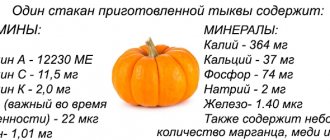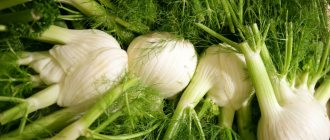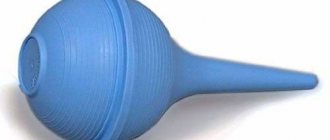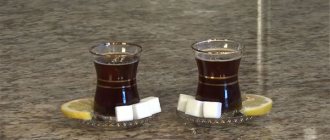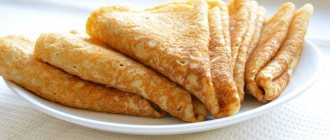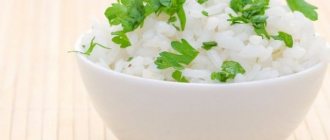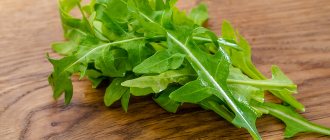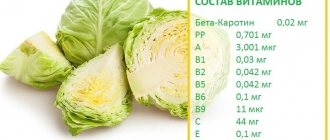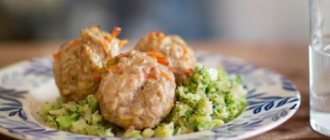Fennel tea for nursing mothers is recommended as a healing agent that increases defenses and improves intestinal activity. The drink saves babies from colic and increases the mother's lactation. The oil is used externally in cosmetology, and decoctions from the plant are used to treat inflammatory processes on the skin.
Can I drink fennel while breastfeeding? The seeds of the plant are brewed as tea and consumed immediately after childbirth. The drink calms the nerves, normalizes lactation, relieves bloating and colic in the intestines. If a baby has problems with his tummy, he is given a decoction during the first month of life, after consulting with a pediatrician.
The expert worked on the article:
Gagarina Svetlana Vyacheslavovna
Author of the article Education: Moscow Medical Academy named after. Sechenov. Professor, Doctor of Science, mammologist, surgical specialist: gynecology, oncology, pediatric and aesthetic surgery.
The information on the site is provided for informational purposes only. Don't self-medicate! Consult your doctor for advice.
Product composition, calorie content
The plant is 90% water. It contains a large amount of ascorbic acid, carotene, vitamins B, E, PP. Dried fruits contain potassium, phosphorus, calcium, copper, iron, manganese, fatty acids, and essential oils.
The calorie content of fresh fennel is 31 kcal, seeds - 345 kcal per 100 g.
Seed composition:
- proteins - 15.8 g; fats - 14.87 g;
- carbohydrates - 12.49 g;
- dietary fiber - 39.5 g;
- water - 8.81 g;
- ash - 8.22 g.
What are the benefits of eating fruits?
The stimulating effect of “medicinal dill” to increase the amount of breast milk has been proven by multiple studies. The seeds, fruits, dry extract, herb, and essential oil obtained from fennel have beneficial properties. If a woman constantly drinks tea with this plant, then when it passes into breast milk, it has a beneficial effect on the baby’s nervous and immune systems. Children become calmer and less agitated (you can learn more about the beneficial and medicinal qualities of fennel for children here).
Indications for taking fennel for breastfeeding:
- It is necessary to stimulate lactation in case of insufficient milk production in a woman and saturates breast milk with useful substances.
- Used to normalize metabolic processes.
- Used for the prevention and treatment of stagnation and inflammation in the mammary gland during lactation.
- Used in the treatment of mastitis and mastopathy.
- Helps the baby to start feeding easily.
- Used to reduce bloating, eliminate intestinal colic and improve the functioning of the digestive system.
- It is used as a sedative, to relieve overexcitation and anxiety, and increase stress resistance, which is also important for nursing women.
- Serves as a preventative against colds and strengthens the immune system.
The plant can rightfully be considered a universal healer. Fennel tea will also help with cholelithiasis, chronic pancreatitis, cystitis, pyelonephritis, conjunctivitis, upper respiratory tract diseases, stomatitis, insomnia, poisoning with alcohol and nicotine toxins, and will be useful for those who want to lose weight.
The beneficial properties of the plant are determined by its chemical composition:
- Nutritional value 100 g:
- Calorie content: 345 kcal.
- Protein: 15.8 g.
- Fat: 14.87 g.
- Carbohydrates: 12.49 g.
- Dietary fiber: 39.8 g.
- Ash: 8.22 g.
- Water: 8.81 g.
- Saturated fatty acids: 0.48 g.
- Essential amino acids: 9.117 g.
- Essential amino acids: 6.178 g.
- Omega-9: 9.91 g.
- Omega-6: 1.69 g.
- Styrene: 0.066 g.
- Contains vitamins:
- Retinol (Vit. A) 7 mcg.
- Thiamine (vit. B1) 0.408 mg.
- Riboflavin (vit. B2) 0.353 mg.
- Nicotinic acid (vit. B3, PP) 6.05 mg.
- Pyridoxine (vit. B6) 0.47 mg.
- Ascorbic acid (Vit. C) 21 mg.
- Contains macroelements:
- Calcium: 1196 mg.
- Magnesium: 385 mg.
- Sodium: 88 mg.
- Potassium: 1694 mg.
- Phosphorus: 487 mg.
- Contains microelements:
- Iron: 18.54 mg.
- Zinc: 3.7 mg.
- Copper: 1067 mcg.
- Manganese: 6.533 mg.
Read more about the beneficial properties of fennel and its contraindications in a separate article.
Beneficial features
The beneficial effects of the plant on the body are presented in the table:
| Action | Ingredients and their meaning |
| Strengthening the immune system | Selenium and ascorbic acid are actively involved in protective reactions. The substances have antiseptic properties, protect cell walls, protecting against harmful external influences |
| Improving the functioning of the stomach and intestines | The seasoning stimulates muscles, helping the outflow of bile, removes gases, and reduces pain. |
| Strengthening the Heart | Having a positive effect on the liver, tea eliminates cholesterol from blood vessels |
| Reducing the risk of colds, getting rid of bronchitis | An infusion of seeds removes phlegm, reduces spasms of the respiratory muscles |
| Strengthening dental tissue | Acting as an antiseptic, the plant fights oral pathologies |
| Relief from diabetes | Reduces sugar levels |
| Prevention of helminthic infestation | The seasoning expels helminths from the body, putting worms to sleep and preventing their reproduction |
| Getting rid of acne | Essential oils remove excess fluid from the skin and treat inflammation |
Does fennel really increase lactation?
Fennel is known for its beneficial effect on lactation. It is also called dill water or sweet dill. This is not just popular opinion. Recently, through scientific research, it was found that the plant actually affects the amount of milk produced. Fennel affects estrogen levels in the body. It is he who is responsible for milk production. Thanks to the use of the product, natural improvement of lactation is stimulated. In addition, the nutritional value of milk increases. The effect may not be noticeable to everyone, and there is a possibility that the medicine may not work for some women.
Doctor Komarovsky's opinion
Dr. Komarovsky claims that increased gas formation in infants is a natural process that is not dangerous for the child. Using herbs will only help the psychological state of the mother, because she is doing something, and in fact the effectiveness is very small.
How to select and store
Raw materials for fennel tea can be grown yourself or purchased. To prepare the drink, not only the seeds are taken, but also the stems and rhizomes. When choosing a medicinal plant, preference is given to green shoots of brightly saturated color. They must have elasticity and density. You should not purchase a wilted plant.
If you choose roots, then pay attention to hard, elastic specimens of a pale green hue. They have a delicate anise scent. You should not buy damaged bulbs with loose edges. It is ideal to purchase tubers with leaves, then you can evaluate the freshness of the plant.
Seeds and rhizomes are selected for storage. Ripe fruits have a brown tint. The umbrellas are cut off and sent to dry. This can be done in the second year of the plant’s life. It is important that the sun's rays do not enter during drying. The seeds obtained in this way are placed in a container and covered to prevent moisture from entering. Fabric bags are also used for storage.
Does fennel tea help nursing mothers against colic in babies?
Fennel tea is recommended to be used to treat colic in babies. It can be used directly by giving it to the baby as a tea or drinking by the mother. According to WHO recommendations, during breastfeeding, a child should not be given anything other than mother’s milk until 6 months of age. During breastfeeding, dill can be given to a child from 1 month. But you should not self-medicate. Before use, you should consult your doctor.
If the mother drinks fennel drinks herself, it is allowed from birth. But it is better to postpone use until the baby is 2 weeks old. Women note that this method, in their opinion, is safer at an early age and quite effective.
Reviews
Olga, 27 years old
I gave my baby fennel tea several times. I think it helped. She tucked her legs in less and cried. I recommend.
Daria, 22 years old
She constantly gave the baby dill water. I drank on my own for up to a month. And my tummy didn’t hurt, and I slept peacefully. Amazing. Grandma's recipes always help, they never let me down)
Kira, 35 years old
She saved all her children from stomach problems with fennel decoction. I drank liters of a weak decoction, and gave it to them too. Back then, almost from the maternity hospital, everything was allowed, not like now. Everyone did this in our time. Tasty and healthy.
Rules for use during lactation
How to drink fennel for a nursing mother:
- first take 40-50 ml of the drink;
- The baby’s condition is monitored for two days;
- In the absence of allergic manifestations, the portion of tea is increased.
The daily norm is 2-3 cups per day. You should not exceed the specified dosage, otherwise there is a risk of the opposite effect. If the plant decoction is consumed excessively, the volume of milk produced may decrease. Replace fennel for lactation with dill, anise, and celery.
Store-bought teas
Drinks are produced by various companies around the world. The herbal mixtures contain herbs that improve the baby’s digestion. The product is brewed like tea and consumed throughout the day.
Hipp
An instant drink made in Switzerland, recommended for children from 4 months of age. The mixture is collected from lemon balm, nettle, anise, and caraway extracts. Hipp tea with fennel for nursing mothers relieves colic, bloating, and intestinal disorders. To prepare, take 2 tablespoons of granules and dissolve them in a glass of hot water, and take 2-3 cups per day.
Humana
Tea with fennel for nursing mothers against colic from a German company. It contains: cumin, raspberries, fenugreek, hibiscus, galega. To obtain the drink, 5 g of granules are poured with half a glass of hot water. Drink 3 cups daily.
Grandma's basket
Product made in Russia. Tea for nursing mothers against colic consists of fennel, cumin, and anise seeds, packaged in filter bags. One of them is brewed in a cup of boiling water for 10-15 minutes. During the day drink 2-3 glasses.
Bebivita
Tea produced in Switzerland. It contains fennel, cumin, anise, glucose, lemongrass flavoring. To obtain the drink, stir 2 tablespoons of the granulated mixture into a mug of boiling water. There is also the option of packaging in filter bags. In this case, the tea is brewed with boiling water and left for 10 minutes. Drink 2-3 cups per day.
Fleur Alpine
Organic herbal tea produced in Lithuania. Packaged in filter bags. The mixture contains: fennel, nettle, lemon balm, galega and other components. Take 2-3 glasses per day.
Lactavit (Lactaphytol)
Herbal tea produced in the form of filter bags. In addition to fennel, it contains cumin, dill, and nettle. One sachet is poured with a glass of boiling water and waited for 20 minutes. Take in the mornings and evenings.
Is it possible to have sweet dill while breastfeeding?
To stimulate lactation, a woman can and even needs to drink tea with fennel. Fennel can be used immediately after childbirth. It is practically harmless, is not an allergen, and has a beneficial effect on all body systems. This is a good option to diversify a nursing woman’s diet during lactation. We talked in detail about the beneficial properties of fennel and contraindications for women here.
Fennel seeds contain anethole, which is a phytoestrogen. It has the properties of the estrogen hormone and stimulates milk production.
Drink Recipes
Fennel during breastfeeding is part of medicinal products. The plant is consumed alone or in combination with other herbs.
Classic recipe from seeds
How to brew fennel for a nursing mother? Place a bowl of water on the fire and add seeds. After boiling, cook for 3-4 minutes. Strain through cheesecloth and leave to cool. The finished decoction is good for no longer than two days.
From fresh leaves
Pour boiling water over 5-10 g of ground plant and cover. Wait 15 minutes. Strain fennel tea for nursing mothers and drink before meals.
From an onion
Before brewing, wash the fennel and remove the stems. Grind with a knife, 5 g (small spoon) pour 200 g of boiling water. Leave for half an hour to infuse. Strain and drink.
With milk
How to prepare fennel for lactation? The plant is consumed with milk. Grind two large spoons of seeds in a coffee grinder. The resulting powder is stirred in a glass of heated milk. If desired, add a little nutmeg and salt. Brew for one and a half hours. Strain and drink.
With anise
Fennel is prepared together with anise to increase lactation. Take half a teaspoon of seeds of each crop. Pour in 1.5 cups of boiling water. Leave for 15 minutes. Strain and drink.
With fenugreek
A teaspoon of a mixture of fenugreek and fennel seeds is poured into 270 ml of boiled water. Let stand for 20 minutes. Drink after straining.
With lemon balm and thyme
A mixture of fennel seeds with dry lemon balm and thyme herbs is brewed (10-15 g per 300 ml of liquid). Leave for 15 minutes. Strain and consume.
Contraindications and application features
Teas to increase lactation have contraindications:
- allergy to herbs in the composition;
- epilepsy;
- pregnancy;
- heart failure.
The effect of drinking fennel tea is purely individual: most mothers note a significant increase in the amount of milk, but some consider the drink useless. It is recommended to try teas from several manufacturers with different compositions of herbs other than fennel. This will allow you to find the most suitable type that has the desired effect. Analogues of tea with fennel are used to eliminate colic in a baby (Plantex, dill water and others). Teas to stimulate lactation usually contain fennel or dill.
Despite all the positive properties of fennel, it should be used with caution, because this plant is medicinal. Follow these guidelines:
- do not use longer than the period specified by the manufacturer;
- follow the dosage and instructions for use;
- do not drink lactogenic teas for prevention;
- If signs of allergy occur (rash, redness of the skin) or digestive disorders, stop taking.
- drink tea warm and brew before drinking;
- To increase lactation, use other auxiliary methods (frequent breastfeeding, co-sleeping, relaxing baths, etc.).
Dish recipes
Fennel fruits are used in cooking during breastfeeding. They are added to sauces, salads, first and second courses. The aroma of the plant gives them a special piquancy.
Sour cream sauce
Ingredients:
- fennel;
- half a medium green apple;
- 1 tsp. lemon juice; 150 g sour cream;
- a teaspoon of powdered sugar;
- salt pepper.
Fennel is washed, peeled and cut into pieces. The apple is chopped into strips. Add sour cream, powdered sugar, salt, lemon juice, pepper. Everything is mixed. Served with meat dishes.
Salad
Ingredients:
- one fennel;
- one tomato;
- half an onion;
- a handful of olives;
- olive oil;
- lemon juice;
- salt pepper.
Fennel is peeled from the top layer. Cut into thin quarters, like onions. The tomato is crushed. The olives are chopped into rings. In a separate bowl, beat the butter, lemon juice, add salt and pepper. Mix all ingredients and season.
Soup
Ingredients:
- fennel - 2 pcs.;
- leek - 100 g;
- celery roots - 100 g;
- carrots - 100 g;
- kohlrabi - 1 pc.;
- potatoes - 300 g;
- water - 2.5 l;
- chicken breast - optional.
Peel and cut the vegetables. Divide the fillet into small pieces, fry in oil, add water. In a saucepan, sauté carrots, leeks, celery, fennel for 3 minutes. Put potatoes in the broth, wait until it boils, add kohlrabi, cook for 3 minutes, add vegetables, cook for another 8 minutes. Garnish with dill.
Flavorful meat
Ingredients:
- 200 g young beef;
- 2 tbsp. l. olive oil;
- 7 green onions;
- fennel tuber;
- lemon;
- salt.
Finely chop the onion and fennel. Cut off pieces of meat. Fry the beef over high heat until browned, reduce, add salt, chop the onion, cover, and simmer for 5 minutes. Add the fennel, squeeze out the juice, cook for a couple more minutes.
Folk recipes
Fennel for nursing mothers is used in alternative medicine as a component of medicinal products for the treatment of diseases.
For bronchitis
Decoction. To prepare, take two teaspoons of dried plant leaves or seeds and add 200 ml of water. Leave for a couple of minutes 20. Leave to infuse for half an hour. Strain, take half a glass 4 times a day. To carry out inhalation, 2-3 liters of water are boiled in a saucepan. Add 3-4 tbsp. l. fennel and cook for another 5-7 minutes. Cover your head and inhale the vapors for 10-12 minutes. Oil will enhance the effect.
For pancreatitis
To relieve pain and regulate the outflow of bile, take herbal infusions with the plant. Mix chamomile, marshmallow, wheatgrass, licorice, and fennel fruits taken in equal portions. For brewing, take 2 tsp. herbal mixture and pour 150 ml of boiling water. Drink at night.
For joint problems
Fennel oil warms and relieves pain. For joint diseases, apply compresses. Mix 12 drops of ether in 30-40 ml of water. Moisten a piece of linen fabric with the resulting product. Apply to the sore spot overnight. Lotions help with arthrosis and arthritis.
For weight loss
To lose excess weight, use fennel oil and fruits. The seeds are chewed when you feel hungry or brewed and drunk. To do this, take one and a half tablespoons of seeds, pour a glass of hot water, and bring to a boil. Drink 50 ml several times during the day.
Massage areas with fatty deposits with essential oil. The product is added to anti-cellulite creams and gels. In combination with other herbs, the plant is used to prepare decoctions. Take a tablespoon of chamomile, green tea and corn silk, 2 teaspoons of fennel seeds. Mix everything and add 300 ml of water. Bring the steam to a boil, turn off and leave for 30 minutes. Drink like regular tea.
Anti-aging masks
To tighten the skin, prepare the following remedy. Mix 8 g of honey, the yolk of one egg, 3 drops of fennel oil. The mask is distributed over the face and left for 20 minutes. Then wash thoroughly. The product is used twice a week.
During breastfeeding, fennel helps activate the lactation process. Tea from the plant has a positive effect on mother's health. The seasoning is added to culinary dishes and used as a therapeutic agent for bronchitis, pancreatitis, and arthrosis. Seed oil fights cellulite and wrinkles on the face.
